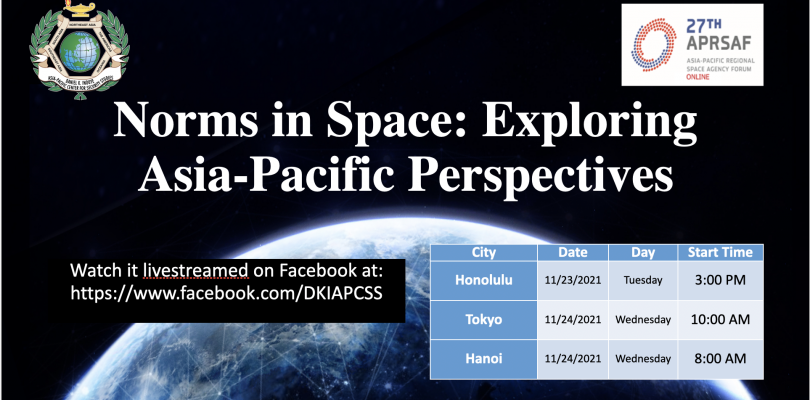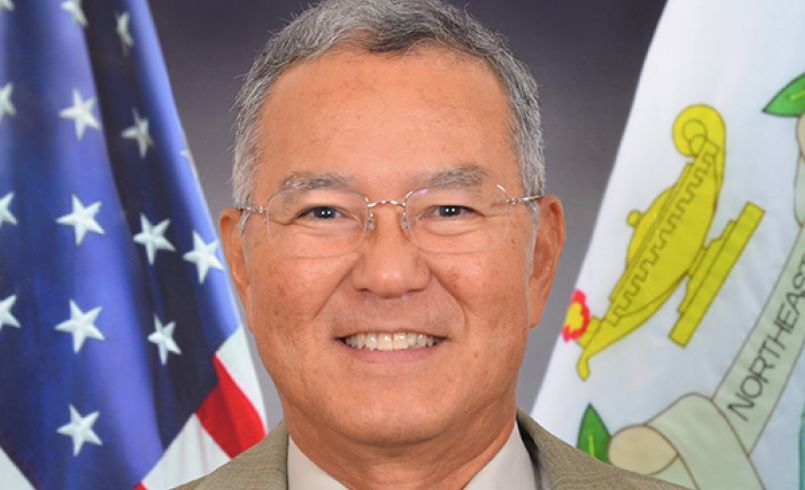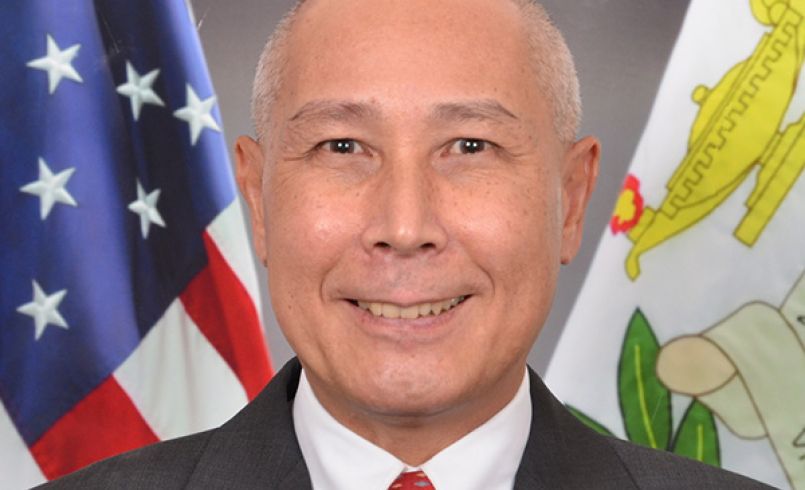- Daniel K. Inouye Asia-Pacific Center for Securi...
- Norms in Space: Exploring Asia-Pacific Perspect...
Norms in Space: Exploring Asia-Pacific Perspectives

Zoom Link: https://apcss.zoomgov.com/webinar/register/WN_1XEnfWDPThGC830SCcF2LA
Recent years have seen tremendous innovations in the science, technology, and business of space. To an important degree, innovations in space governance have not kept pace with these rapid advances. Accompanying the many innovations that have occurred and will soon emerge, there is a need equally for creative and innovative thinking around governance to safeguard space for future generations.
Towards that end, increasing numbers of policy makers and space experts speak of the potential of norms in space as a way to innovatively contribute to responsible behaviors reducing risks and threats in space. Defining such norms, of course, will require much further discussion and consultation, as perspectives differ considerably between nations and across different space sectors and stakeholders. In an effort to foster greater exchange of such perspectives, the United Nations General Assembly adopted a resolution (UNGA 75/36) in December 2020, encouraging members to outline what in their view might be perceived to be threats and security risks to space systems, describe the actions and activities that could be considered responsible, irresponsible or threatening, and share their ideas on the further development and implementation of norms of responsible behaviors to reduce risks of misunderstanding and miscalculations in space.
This APRSAF-27 Side Event will highlight the significance of this issue for the Asia-Pacific region, and the importance of participating in the discussion to contribute perspectives reflective of Asia-Pacific societies’ views. The Side Event will stimulate cross-national and cross-sectoral discussion about innovating governance through space norms among and between Asia-Pacific speakers and participants, paving the way for further regional discussions and potential regional collaborative approaches.






